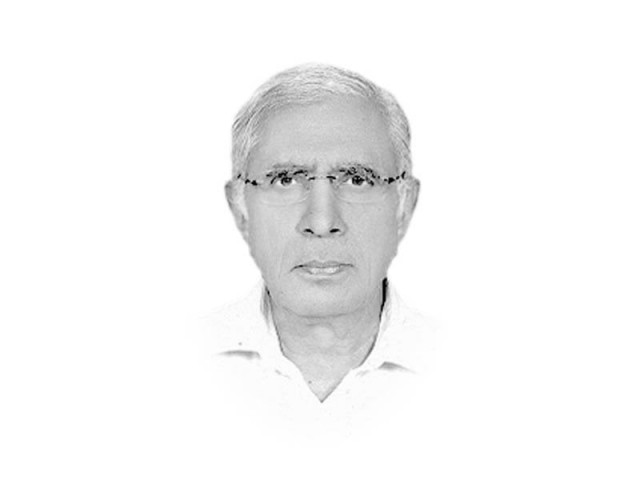KSA in a ‘revolutionary’ mode?
Even the most ordinary of changes that occur in the KSA do affect us rather profoundly

The writer served as executive editor of The Express Tribune from 2009 to 2014
It is perhaps for the same reason that Prime Minister Shahid Khaqan Abbasi, Foreign Minister Khawaja Asif and Chief of the Army Staff Qamar Javed Bajwa took a day-long round trip to Saudi Arabia the other day, perhaps to be personally briefed by Crown Prince Mohammad Bin Salman on the ‘revolutionary’ changes being introduced in the Kingdom.
The Saudi Kingdom serves as the custodian of Islam’s holiest places. Thousands of Pakistanis visit Saudi Arabia every year for Haj and Umrah. Nearly two million Pakistanis are gainfully employed in the Kingdom and remit every year nearly $6 billion — 25% of the total receipt — to Pakistan. We have an annual bilateral trade of a little over $2 billion with Saudis exporting crude worth $1.5 billion and Pakistan exporting items worth over $500 million.
The Kingdom has rescued Pakistan in times of dire financial crises. Only in 2014, it gave Pakistan a long-term loan of $1.5 billion and recently we have received a number of emergency loans from the Islamic Development Bank. And on a number of occasions the Kingdom has offered us oil sales on differed payment. The armed forces of the two countries have close cooperative links with contingents of Pakistani troops sent to the Kingdom to guard its borders in times of Middle East crises. We have also been providing training facilities to personnel of its armed forces.
The drastic drop in the world oil prices and the chances of these going back to the good old days of $100 a barrel looking too remote as shale oil is being franked in abundance in the US. King Salman has taken a number of ‘revolutionary’ steps to enable the Kingdom to be able to stand the vicissitudes of an economy without being underpinned by a sea of petrodollars. The most fundamental change that the King undertook was to clear all the traditional decks in the way of his 37-year-old son Mohammad becoming not only the crown prince but at the same time letting him assume all the decision-making powers.
MBS followed up immediately by introducing a number of ‘revolutionary’ reforms — in fact a package of four reforms emanating from revolutionary steps being taken on the economic front. A process of transiting and diversification of the economy has already begun to reduce the Kingdom’s dependence on oil exports. Mohammad is planning to develop a revolving fund of $500-600 billion with about $200-300 billion fenced in for the rainy days. He is planning to raise about $100 billion by selling a part of Aramco, $100 billion from the anti-corruption campaign he has launched and another $100 billion by bringing under control the annual budgetary deficits of $50-75 billion by economising on expenditures and withdrawing all subsidies over the next 10 years.
In order to undertake all these reforms and modernise society he has started reforming the governance system liberating it from its traditional royal red tape, shelving at the same time as many as 60 orthodox, ultra-conservative clerics and allowing movie and music theatres to operate in the Kingdom and introducing theme parks.
Next, the crown prince has embarked on reforming the Kingdom’s foreign policy. He has sought to bolster its regional power by establishing a number of informal multilateral coalitions and alliances in which combinations of various Arab, Muslim and other nations participate under its leadership. The first was the Arab Coalition in Yemen, launched in March 2015. This was followed by the Islamic Military Alliance to Fight Terrorism in December 2015. The most recent is the Anti-Qatar Coalition, established in June 2017, to force Saudi Arabia’s longtime rival in the GCC to fall in line with its strategic worldview.
Published in The Express Tribune, December 3rd, 2017.
Like Opinion & Editorial on Facebook, follow @ETOpEd on Twitter to receive all updates on all our daily pieces.















COMMENTS
Comments are moderated and generally will be posted if they are on-topic and not abusive.
For more information, please see our Comments FAQ